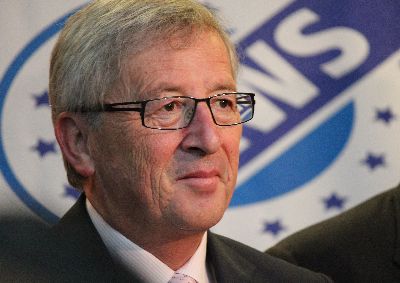Ahead of this Thursday’s meeting of the conference of presidents of political groups in the European Parliament, which will discuss the creation of an inquiry committee into tax evasion and dumping, the legal services of the parliament have today presented their assessment. The assessment confirms that an inquiry committee into the issue is possible but that the mandate, which was proposed by the Greens/EFA group and received the required support of 25% of MEPs, would need to be adapted (1). Commenting on the development, Greens/EFA co-president Philippe Lamberts said:
“An inquiry committee into tax avoidance and dumping in Europe is both legally possible and politically essential. It is now a question of political will and we would strongly urge the European Parliament’s president and the leaders of the EP’s political groups to politically commit to an inquiry committee. While the draft mandate may need technical adaptation to conform to the parliament’s rules of procedure, if the political will to create an inquiry committee is there at the top level, the way to achieve this is straightforward. Based on our preliminary assessment, we are confident that all objections made by the legal service can be resolved by revising the mandate and our group aims to provide such a revision later today. If the European Parliament’s political leaders want to create an inquiry committee, they should support our efforts to ensure a technically-compliant mandate, which addresses the political necessity for such an inquiry.”
Greens/EFA economic and finance spokesperson Sven Giegold said:
“An inquiry committee is the most powerful and most appropriate instrument at the European Parliament’s disposal and, as such, the only appropriate response to the issue at hand. It will ensure the maximum political attention and pressure is applied with a view to fully investigating and therefore providing the most comprehensive basis for a meaningful EU response to the excesses of a tax competition and dumping, which only benefits big corporations and wealthy individuals, at the expense of ordinary citizens and taxpayers. An inquiry committee provides the strongest basis for gaining access to official documents from national authorities, a key provision as taxation matters remain in member states’ hands. With the Luxembourg Leaks revelations having shone a welcome spotlight on the tax dumping and avoidance practises that have blighted the EU, the European institutions cannot be seen to be shirking their responsibility.”
(1) The legal service concluded that the draft mandate, in its current form, does not “identify duly and specify the alleged ‘contravention’ or ‘maladministration’, in compliance with the applicable rules, and thus fails to comply with these mandatory requirements for the setting up of an inquiry committee”. This will include reference to new evidence indicating that EU member states failed to comply with the legal obligations they set themselves to exchange information on tax rulings.

